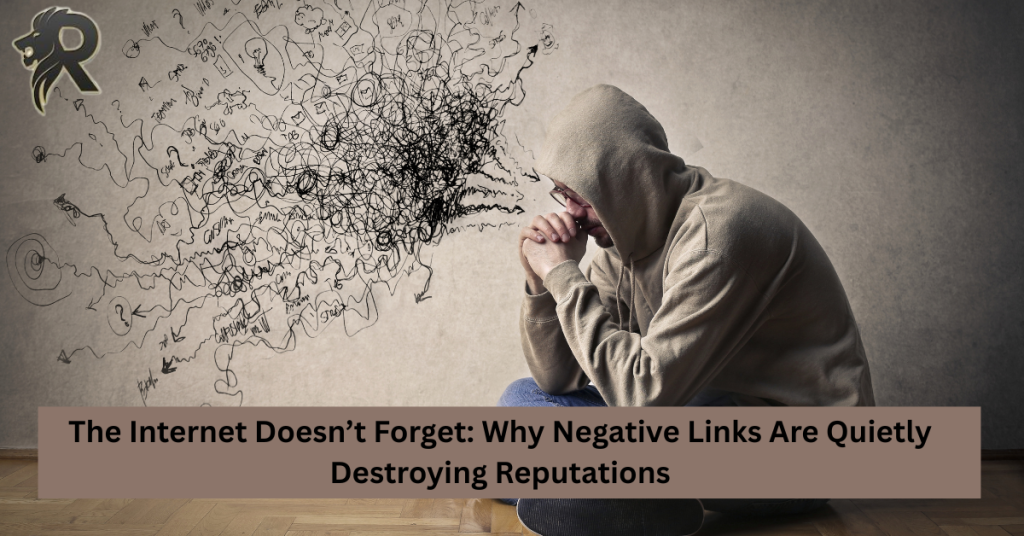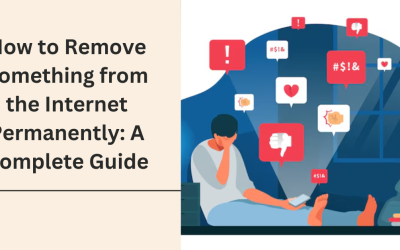The Internet Doesn’t Forget: Why Negative Links Are Quietly Destroying Reputations
When One Link Can Cost You Everything
Imagine this:
You apply for your dream job, pitch a major client, or close on a property deal.
Everything’s going great—until someone Googles your name.
What do they find?
A 10-year-old news article about a resolved dispute.
A Reddit thread full of speculation.
A Google review left by a disgruntled former customer (or worse, a competitor).
Even if the information is outdated, misleading, or completely false, it can shape public perception in seconds.
According to a CareerBuilder survey, 70% of employers admit they’ve rejected candidates because of something they found online.
In the business world, a Harvard Business Review study found that reputation damage can lead to a 30% loss in brand value.
These aren’t just hypothetical risks. This is the reality of the digital age.
What Counts as “Negative Content”?
Here are the most common types of harmful online content that individuals and businesses struggle with:
🔍 1. Outdated News Articles
News stories about resolved lawsuits, legal investigations, or company failures often rank highly in Google and remain visible for years—even when the issue is no longer relevant.
Stat: 42% of people trust news articles as the most credible online source—even if the article is outdated (Pew Research, 2023).
💬 2. Fake or Malicious Reviews
Sites like Google Reviews, Trustpilot, Yelp, and Glassdoor are full of biased or unauthentic reviews. These don’t just influence purchasing decisions—they can destroy a small business’s reputation overnight.
Stat: 86% of consumers hesitate to purchase from a business with negative online reviews (BrightLocal, 2024).
🧑⚖️ 3. Public Records & Legal Listings
Court records, police blotters, or mugshots—even if charges were dropped—can appear on sites like Mugshots.com, DocketBird, and public court databases, and they often get indexed by Google.
Stat: Nearly 1 in 5 Americans have had public records posted online without context or consent (EPIC.org, 2024).
📱 4. Harmful Social Media Mentions & Reddit Threads
Negative or false posts on Reddit, X (formerly Twitter), Quora, or forums often rank on the first page of Google due to their domain authority.
These posts can:
- Spread misinformation
- Harm your brand with no legal recourse
- Be reposted or screenshot even after deletion
🧑💻 5. Anonymous Blogs & Blackmail Websites
Sites like RipoffReport, DirtyScam, or even “personal revenge blogs” exist solely to defame or extort individuals. These are notoriously hard to remove and designed to rank on Google by default.
Stat: Over 60% of people who become targets of online defamation experience emotional distress or financial loss (ReputationDefender Survey, 2022).
How Negative Content Impacts Real Life (Beyond Just Reputation)
- Job Opportunities: HR departments often run a simple Google search. One negative link can end your chances.
- Business Deals & Funding: Investors and partners research your background. What they find can make or break a deal.
- Social Standing & Mental Health: Public shame or exposure—even from outdated or unfair content—leads to anxiety, depression, and sometimes legal consequences.
🧠 Real Example:
A client we worked with—an entrepreneur—lost a $2M investment after an outdated article about a previous business failure showed up as the top result on Google. The article didn’t mention that the case was dismissed or that he had gone on to build a profitable company.
Is It Possible to Remove Negative Content from the Internet?
Yes, in many cases. But it requires a strategic mix of legal, technical, and SEO-driven approaches.
✅ What We Do at SecureOnlineReputation.com:
- Legal Takedowns – Using GDPR, DMCA, India’s DPDP Act, or CCPA to request removals based on defamation, copyright, or privacy violations.
- Search Engine Suppression – Burying negative content with optimized, positive content that pushes harmful links off Page 1.
- Review Management – Flagging or disputing fake reviews and cleaning up third-party review platforms.
- Sentiment Monitoring – Proactive alerts when your name or brand is mentioned negatively online.
- Content Replacement – Publishing high-authority content (e.g., press releases, interviews, blogs) to reclaim search results.
Take Control Before It Gets Worse
The truth is: the internet is your résumé, your storefront, and your reputation all in one. And unless you manage it, others will define you.
If there’s negative content about you online, don’t wait for the consequences to catch up.
Act before it impacts your livelihood, your business, or your peace of mind.



